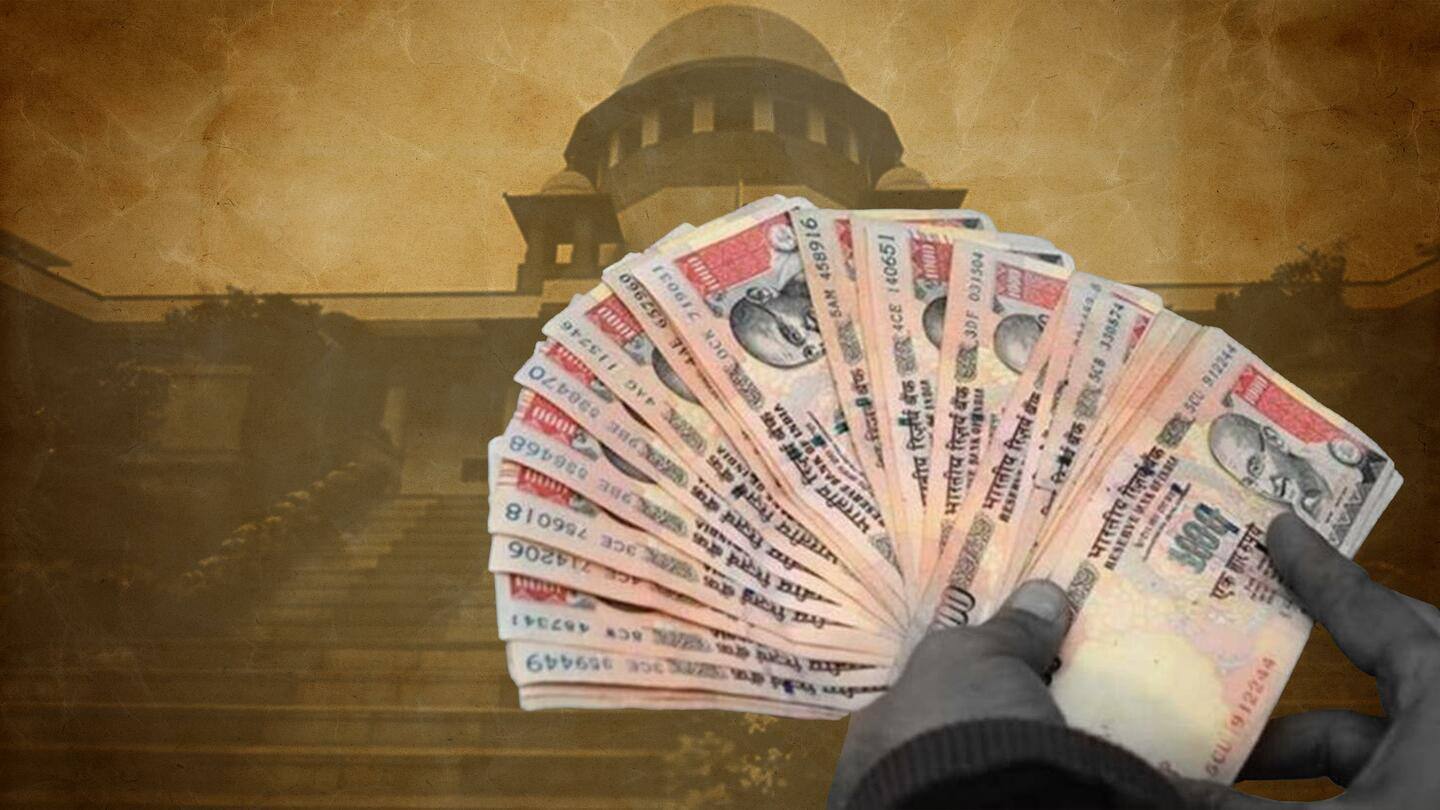
'Not flawed': Supreme Court upholds government's 2016 decision of demonetization
What's the story
Upholding the Centre's 2016 decision of demonetization, the Supreme Court on Monday junked all 58 petitions challenging it, saying the financial decision taken by the government can't be overturned. Its Constitution bench observed that the Centre and the Reserve Bank of India (RBI) consulted for a period of six months before undertaking the exercise, and the decision wasn't hit by the "doctrine of proportionality."
Context
Why does this story matter?
The central government demonetized Rs. 500 and Rs. 1,000 currency notes in 2016, claiming it would eliminate counterfeit currency and terrorist funding. However, the government data submitted in Rajya Sabha during the 2022 Budget Session shows that fake Rs. 500 notes in circulation grew by over 197 times since 2016, while counterfeit Rs. 2,000 notes increased from 638 in 2016 to 8,798 in 2020-21.
Bench
Verdict pronounced with 4-1 majority
Justice SA Nazeer, who is set to retire on Wednesday, headed the five-judge Constitution bench comprising Justices BR Gavai, AS Bopanna, V Ramasubramanian, and BV Nagarathna. The verdict held that demonetization was valid and passed the test of proportionality. Justice Nagarathna—the only judge on the bench with a dissenting view—held that though well-intentioned, the move must be declared unlawful based on legal grounds.
Order
Centre allowed demonetization under Section 26(2) of RBI Act
Justice Gavai, however, said that it wasn't relevant if the objective of demonetization was achieved or not. The bench held that the prescribed duration of 52 days for exchanging demonetized currency wasn't unreasonable. It observed that the Centre, in consultation with the RBI, could implement demonetization under Section 26(2) of the RBI Act, as the latter doesn't have any independent power for the same.
Information
SC earlier asked RBI to submit a comprehensive affidavit
The Supreme Court previously reserved its verdict after directing the RBI to furnish the relevant records linked to the government's 2016 demonetization decision. The Centre earlier told the top court that demonetization was a "well-considered" move.
Argument
RBI's counsel resisted SC's attempt to revisit demonetization
The RBI's counsel, Attorney General R Venkataramani, earlier argued that the SC can't decide on the matter as it can't grant any tangible relief by "putting the clock back" and "unscrambling a scrambled egg." However, appearing for the petitioners, senior advocates P Chidambaram and Shyam Divan, among others, had argued that the government can't initiate any proposal on its own relating to legal tender.
Details
RBI, government claimed demonetization had become 'academic'
Earlier, acknowledging the ambit of the judicial review of state policies, the bench said it would nevertheless examine demonetization. It said it was answerable to the plea filed to check if the move was a mere academic exercise or had borne any positive results. The RBI and the Indian government's counsel repeatedly asserted that the matter had become academic in the last six years.